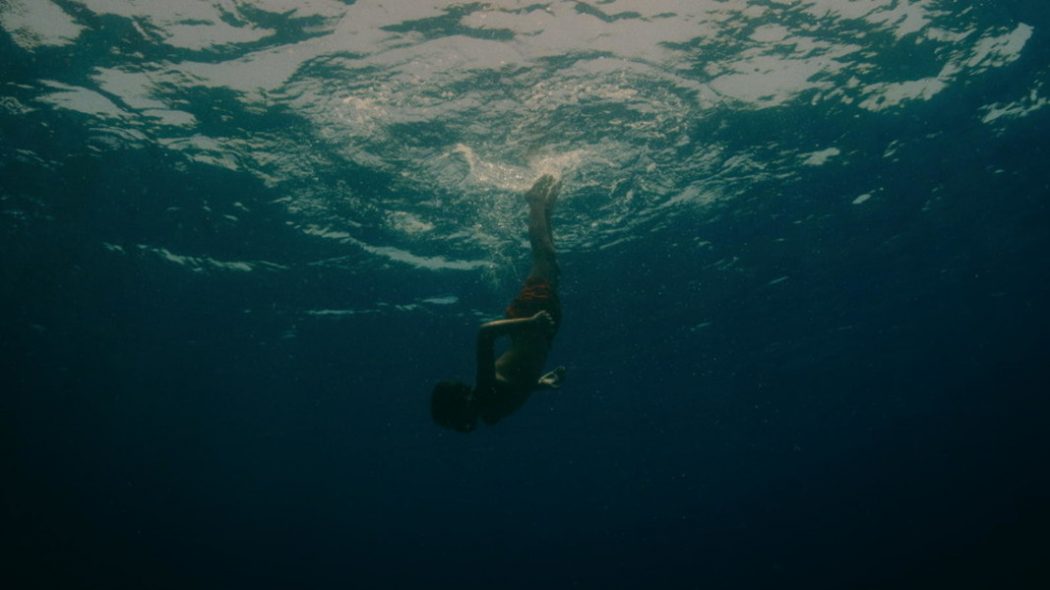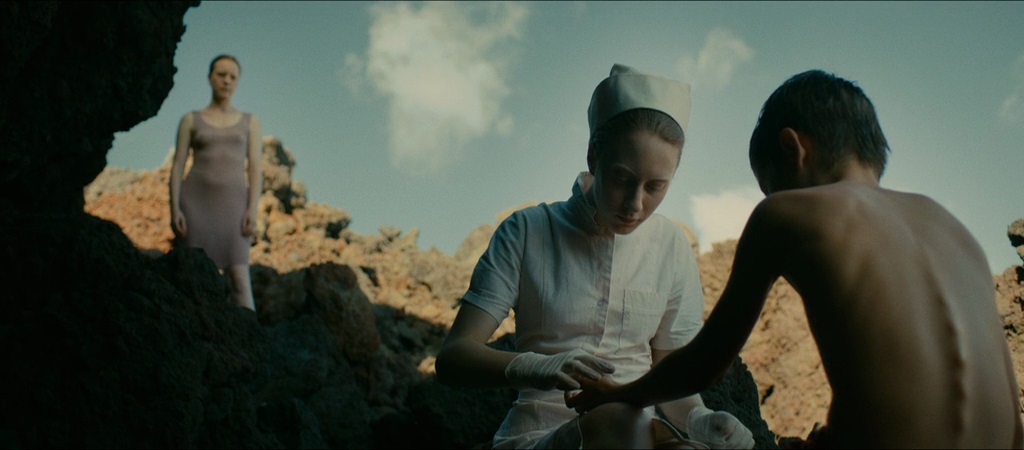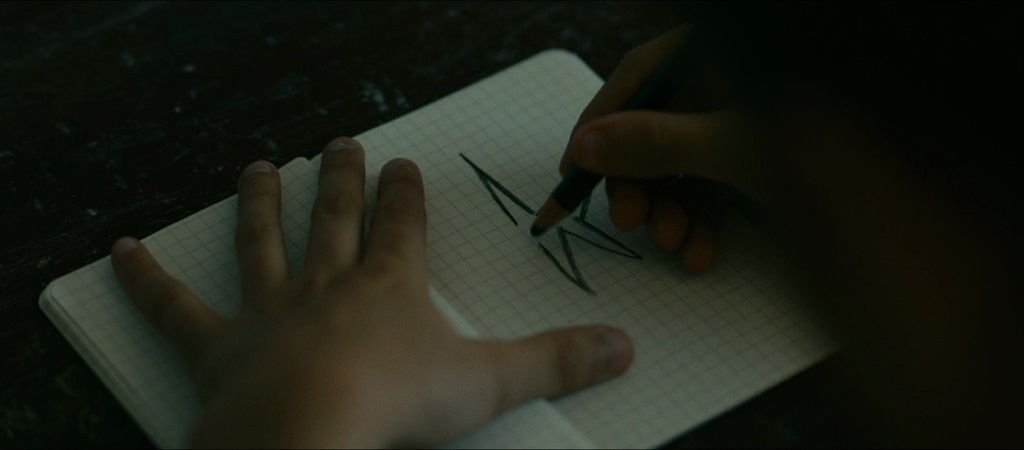Amazon Video | iTunes | VUDU
Blu-ray available 3/21/17 from Shout! Factory
French writer-director Lucile Hadžihalilović’s deliberately paced, invigorating sci-fi glimpse of a foreign coastal society transcends both its genres.
Lucile Hadžihalilović’s eerily original and long-awaited follow-up to Innocence (2004) astutely hypothesizes life in an alternate reality where a matriarchal society does not procreate but controls the means of procreation, which has evolved from known human biology to juvenile surgical procedure. Evolution‘s deliberately paced minimalist narrative that unfurls over eighty minutes wouldn’t be as effective without an enveloping atmosphere provided by Hadžihalilović’s intrepid cinematographer Manuel Dacosse, whose submerged camera is flooded with an infinite world under the surface of the Mediterranean Sea, rife with reefs and swaying anemones, a metaphor for the surreptitious treachery on land (the scenic isle of Lanzarate, Spain, to be specific). But accrediting its ambient mood entirely to its visual dimension is also to ignore its wondrous oceanic sound design helmed by Fabiola Ordoyo). Complementing the dynamic range of crashing waves to placid current is Zacarías Martínez de la Riva’s intuitive score (elevated by Cyclobe’s shimmering, celestial “How Acla Disappeared From Earth“); the weeping timbre of the theremin/ondes Martenot seamlessly assimilates into the sonic undulations of the natural environment.
In terms of its initial wonder, consciousness, and enduring body horrors, the film’s resonant, multifaceted title can be attributed to the director’s adept synthesis of disparate influences in art house cinema and science fiction. Remote location and ambiguous tone recall Anotonioni’s L’avventura (1960) and Bergman’s “God’s Silence” trilogy (1961-1963) as much as the medical chambers in Cronenberg’s Dead Ringers (1988); but it finds further narrative correlations in the genetic anomalies of The Brood (1979) and early seasons of The X-Files. Hadžihalilović herself cites the inspiration of Uruguayan cult director Narciso Ibáñez Serrador (The House That Screamed) and surrealist painter Giorgio de Chirico (much like the conceptual artists behind the game Ico) in the premise and color correction, respectively. Yet, the film’s most indelible image belongs to the figure and countenance of actress Julie-Marie Parmentier as the amphibious, androgynous mother to ten-year-old Nicolas (Max Brebant).
Parmentier channels an otherworldly energy into her performance with subtle expression and a simultaneously inhibited and radiant sexuality, resembling a cross between David Bowie as Thomas Newton in Roeg’s The Man Who Fell to Earth (1976) and Scarlett Johansson’s nameless female entity in Glazer’s Under the Skin (2013). A positively menacing presence, Parmentier’s mother first appears in the illusion of domesticity preparing a meal, but she’s more of an inspector or overseer who constantly looms over Nicolas’ shoulders to ensure his curiosities about his surroundings and body are quashed with curt reassurances… and, if necessary, by any duplicitous means. In one of the film’s most fluidly edited sequences, mirroring its essential lifeforce of water, the icy night stillness of their home cuts to a long shot of the craggy expansive coastline by day. The mother then suddenly emerges from the waves to ascend the rocks, hiking through them like smoke as if birthed from the sea. In her hands, she displays the echinoderm of Nicolas’ fixation, a blood-red starfish, which he claims was affixed to the belly of a sunken corpse. To placate him, she says, “There never was any drowned boy,” while blaming the sea for stirring his imagination.
In disbelief, Nicolas quickly scours the lush sea floor for the body but only ends up slicing open his palm on the coral, an event that gives the mother requisite justification to literally march him to the doctor for observation where he will undergo a number of injections, tests, and scrutiny. During his first night at this facility, the five lights of the operating table shine into his eyes, reflecting the same starry shape as the asexually reproductive fish. Over time, the youngest in the team of nurses, Stella (Roxane Duran), takes a particular liking to Nicolas, and she nurtures his creative inclinations and fascinations in drawing on a notepad that reveals suggestions of dormant memories. Through the more plot-heavy escalation in the final act of Evolution, Hadžihalilović remarkably manages to sustain a sense of mystery in the fate and blurring of newfound maternal and taboo sexual attraction of Stella to the prepubescent protagonist. Instead, the director carefully focuses the essence of her film on the dystopian universe and its function, transcending simple ideology and explanation to become a surreal rebuke of coming-of-age narrative. The unnerving result is a sort of declaration against tyranny that inverts the origins of life itself in entirely reinventing the nature v. nurture debate.
–
Check out the other “Missed Madison” Film Festival reviews for today:
Microbe and Gasoline reviewed by Edwanike Harbour at Madison Film Forum
The Midnight After reviewed by Lewis Peterson at Madison Film Forum
Toni Erdmann by James Kreul at Madison Film Forum



